The CONCERTO project is exploring novel certification methods and means of compliance for disruptive technologies. The project aims to develop a comprehensive set of regulations on certification, together with a preliminary description of Methods of Compliance (MoCs) applicable to the three "thrusts" of Clean Aviation (Hybrid electric regional aircraft, Ultra-efficient short and short- medium range aircraft, Disruptive technologies to enable hydrogen-powered aircraft). It will also assess the feasibility of a digital certification framework to support collaboration and model-based certification, while developing the novel Certification Readiness Level (CRL) scale to serve as a common certification framework, in close collaboration with the EASA.
Project meetings & workshops
- Last September, Steering Committee and Project Management Committee meetings were held was held in Getafe, Spain, hosted by Airbus Defence and Space. Key highlights included the review of technical milestones and progress achieved so far and strategic planning for the next phase of development.

- On October 16th and 17th, IRT Saint Exupéry had the pleasure of hosting a collaborative workshop in Toulouse with the CONCERTO Project partners, including representatives from Airbus, ArianeGroup, Airbus Defence and Space NL, ONERA, DLR, the Universitat de Girona, and INEGI. The workshop proved highly productive, with partners sharing the latest advancements in Uncertainty Quantification (UQ) methods and their applications to the PoC H2 demonstrators.
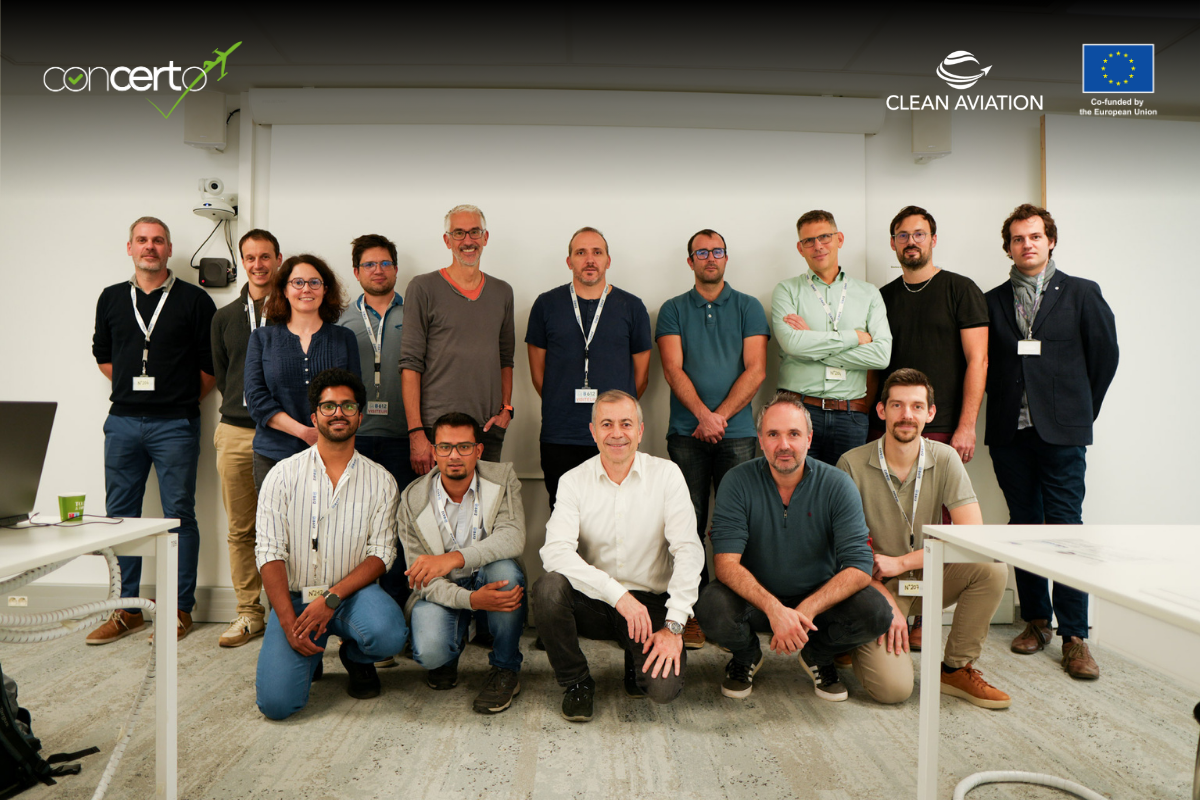
- In November, ONERA welcomed CONCERTO Project PoC H2 team and EASA Panel 7 experts to visit the PyCoFiRe facility in Centre Fauga-Mauzac. PyCoFiRe is the core of the CONCERTO activities related to the characterization of H2 behaviour inside an engine compartment simulating H2 leaks at different flight conditions. Aligned with the global CONCERTO goals, this meeting served as an early exchange with the EASA on the research activities ongoing to feed the regulatory discussions, with focus posed on H2 leaks and fire characterization through testing and simulation. The fruitful gathering, supported by ONERA, Safran, Airbus, and EASA, served to align in the global view, capturing the expectations and defining further steps for collaboration. Read the full story here.
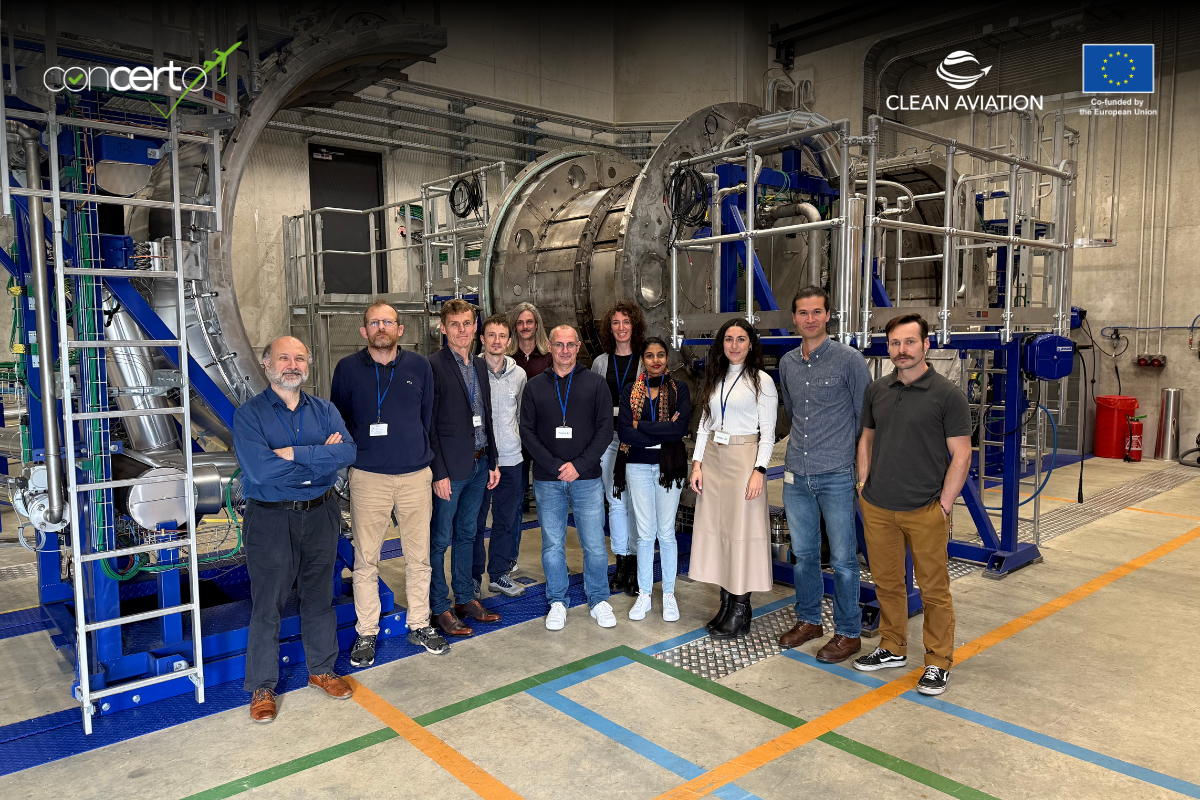
- Also this November, Collins Aerospace hosted the CONCERTO Project WP5 partners at its offices in Rome for a Workshop on the Digital Certification Framework. Representatives from Airbus Helicopters, Dassault Aviation, Dassault Systèmes, Rolls-Royce, Airbus, IRT Saint Exupéry and Safran attended the workshop, both in person and online. The event turned out to be highly productive; substantial progress was recorded in the evaluation of possible architectures of the digital certification framework, the preparation of demonstrations, and the elaboration of a roadmap for progressive implementation.
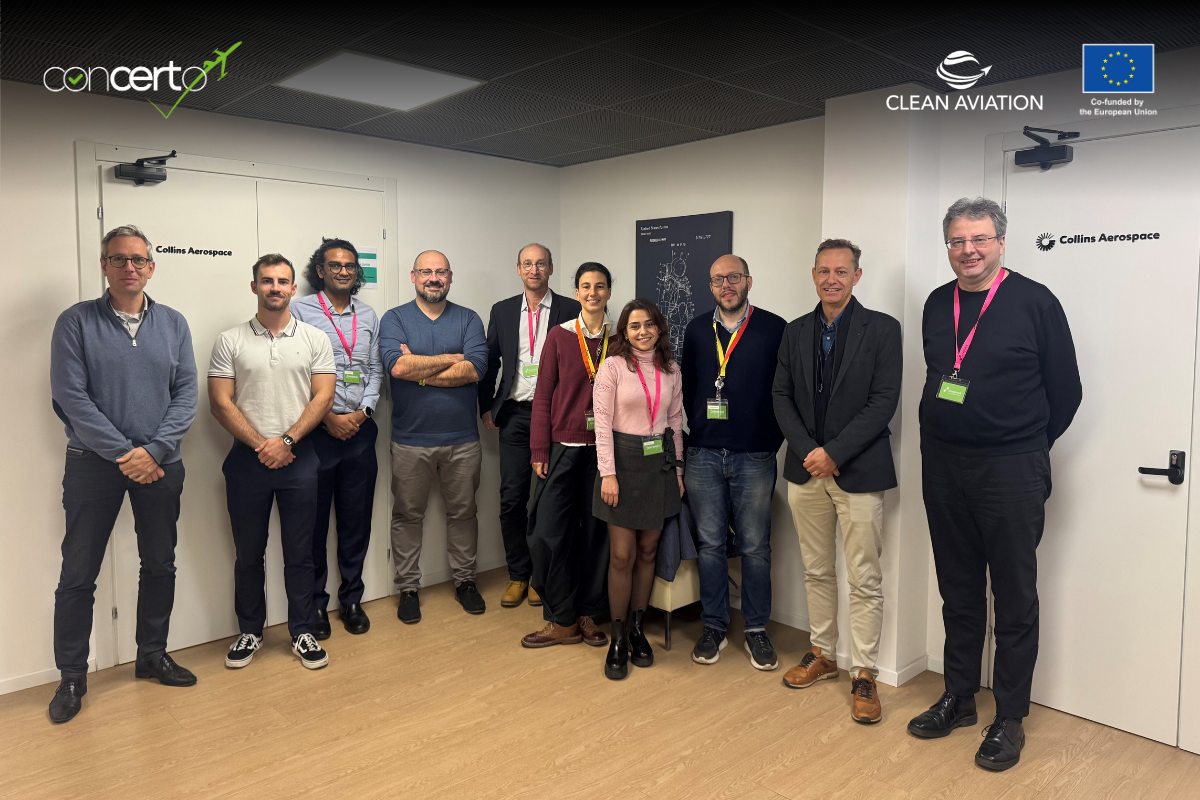
- In December, CONCERTO organized an insightful workshop at the Clean Aviation premises, focusing on the certification of Active Wing technologies, a critical step in driving innovation and sustainability in aviation. This collaborative event brought together key stakeholders, including EASA as a Panel Expert, alongside several Clean Aviation projects, including HERWINGT, HERA, and AWATAR.
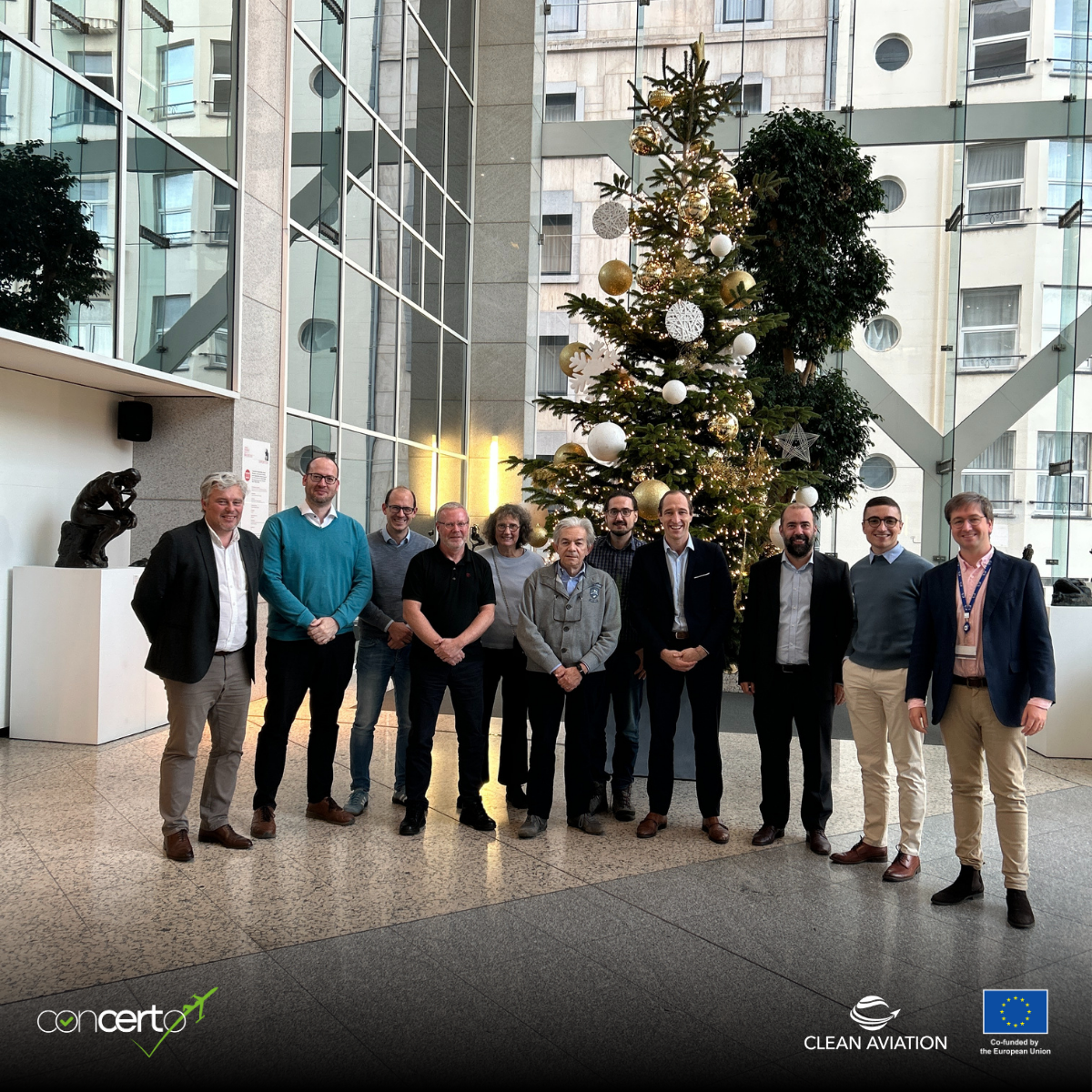
14th EASN International Conference: "Pioneering Certification of Disruptive Technologies: The CONCERTO Project"
This October the CONCERTO project team had the chance to present the latest technical advancements as part of the session "Pioneering Certification of Disruptive Technologies: The CONCERTO Project" at the EASN Conference in Thessaloniki.
Key highlights included:
- Introduction to the Certification Readiness Level (CRL) scale, by EASA - European Union Aviation Safety Agency and Dassault Aviation
- Overview of the Digital Certification Framework, by Dassault Aviation
- Technical progress of the H2 Proof of Concept, by ISAE-SUPAERO and Pipistrel Aircraft
- Technical progress of the Active Wing Proof of Concept, by ONERA
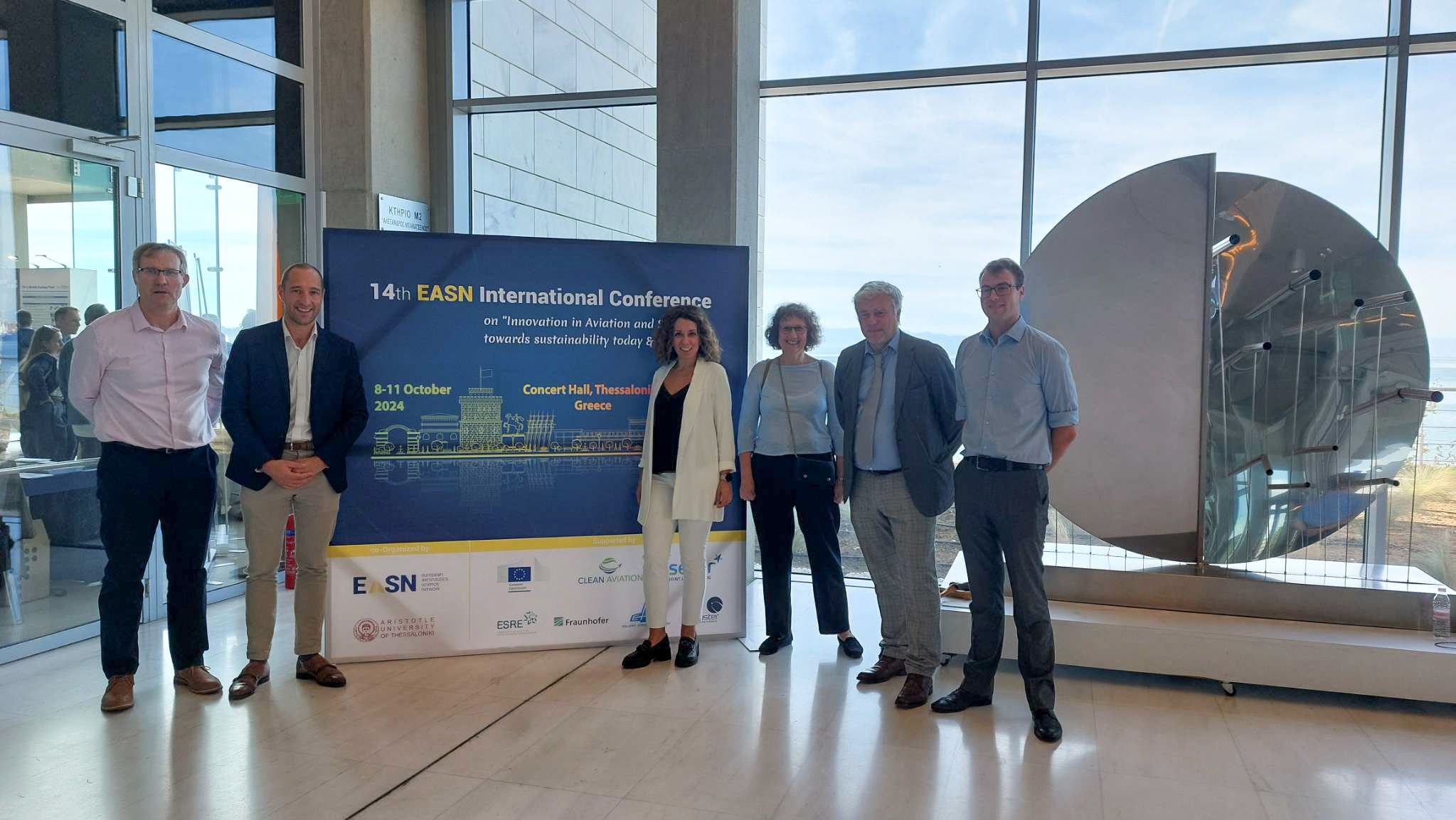
CONCERTO at GIFAS workshop
This December, CONCERTO representatives from Dassault Aviation and ONERA had the honor of presenting CONCERTO's initial results in a workshop on "Certification and safety challenges raised by new technologies", organized by GIFAS (Groupement des Industries Françaises Aéronautiques et Spatiales) in Paris, France.
Key highlights included:
- The CONCERTO Process: From CONOPS specification to the development of new Means of Compliance (MOCs) via gap analysis, to prepare for the certification of innovative concepts.
- Lessons Learned: Insights from gap analysis for Active Wing (AW), High Voltage Distribution (HVD), and Hydrogen Integration (H₂).
- Digital Certification Framework: The roadmap towards streamlining and modernizing certification processes.
This workshop was part of GIFAS's initiative to explore new certification principles, artificial intelligence applications, new energy sources like hydrogen and batteries, and integration of electronics in aeronautics.
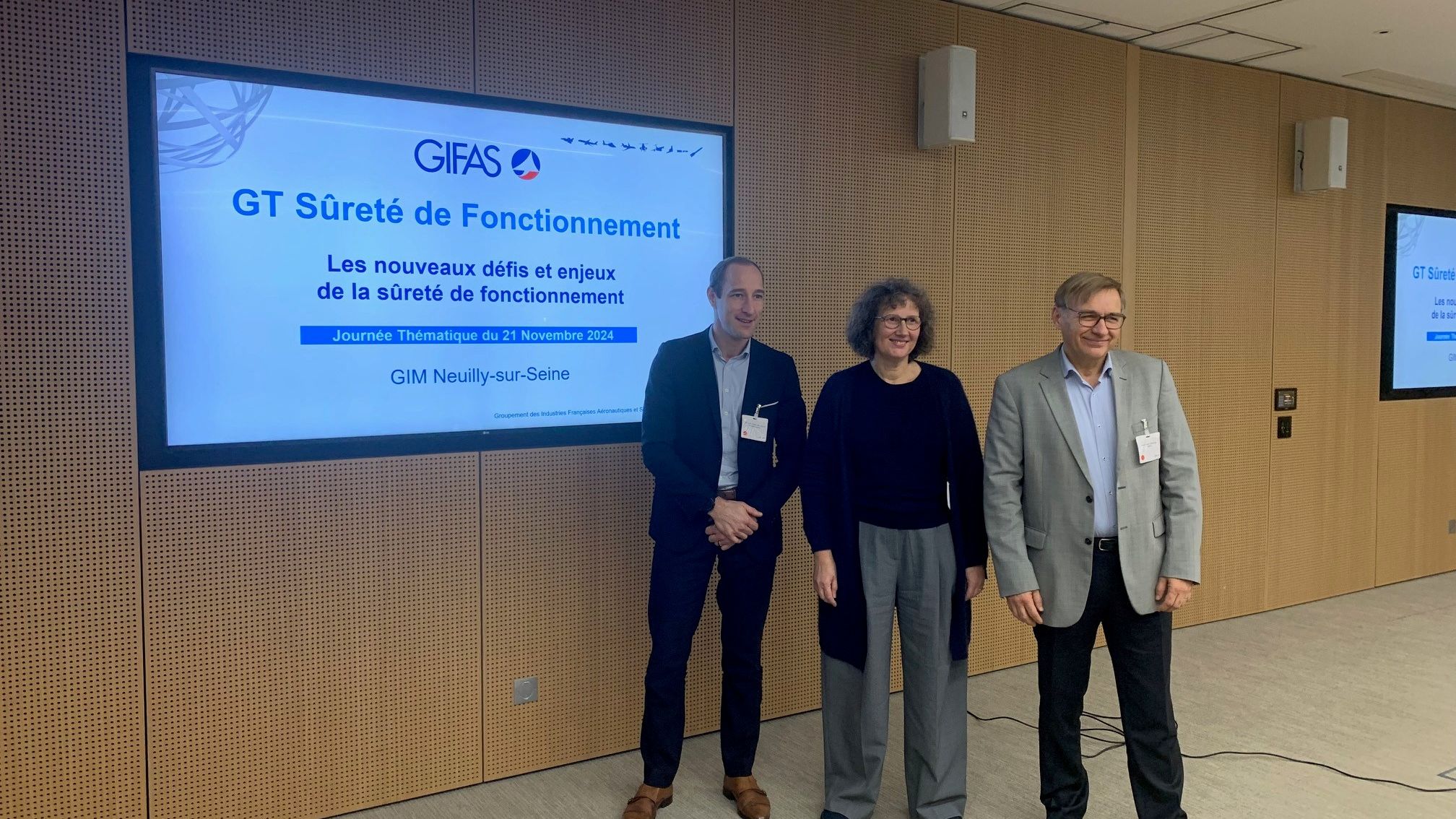
Scientific Publication
The scientific article presented by our partners from ISAE-SUPAERO and Airbus at MEA2024 Conference in Toulouse, France, is now available on the CONCERTO's ZENODO Community and on the project website.
Title: Hydrogen Aircraft Certification: Determination of Regulatory Gaps
Authors: Joël Jézégou, Robert André, Yves Gourinat
Upcoming Events: AIAA Scitech Forum 2025
CONCERTO will be participating in the AIAA Scitech Forum on January 6-10, 2024, which will be held in Orlando, USA. The project's core advancements will be showcased at the "Clean Aviation Novel Certification" session, while a technical paper will also be presented by ISAE-Supaero.
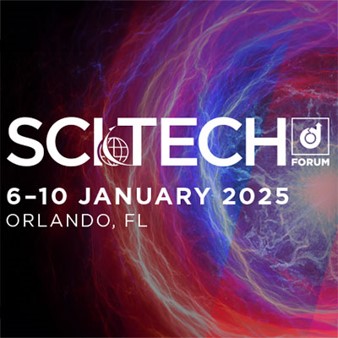
Stay up-to-date on the exciting developments of CONCERTO by visiting our website and following the project's social media pages on LinkedIn & Χ.

The project is supported by the Clean Aviation Joint Undertaking and its members.
Funded by the European Union. Views and opinions expressed are however those of the author(s) only and do not necessarily reflect those of the European Union or Clean Aviation Joint Undertaking. Neither the European Union nor Clean Aviation JU can be held responsible for them.
